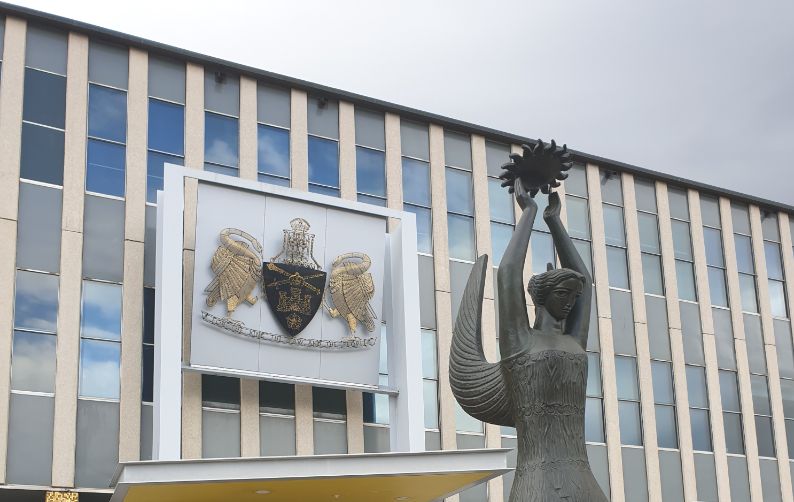ACT Greens: More funding for community sector
The ACT Greens have promised to properly fund the community sector, and treat them as an equal partner, Emma Davidson, current minister for community services, said.
In July, the ACT Council of Social Service (ACTCOSS) launched a campaign calling for more resourcing for the sector, warning that some organisations could close within the next year, with catastrophic consequences for people in need.
The Greens said that within the first three months, they would review community sector organisations on old contracts, those not recently commissioned, and those at risk due to inadequate funding. This review would cost $300,000. They also plan to provide $20 million in short-term financial support to maintain service levels until secure, long-term funding is arranged.
A rapid funding mechanism would be set up for community sector organisations during climate emergencies or natural disasters.
The Greens would invest $1.5 million in the Sector Sustainability Program, which includes refurbishing ACT Government-owned buildings leased to community sector organisations. The review of facilities, costing $300,000, would be completed by 2027, and would determine the cost of refurbishments.
They would ensure that pay and conditions in the community sector match those in the private sector and public service. An additional $10.35 million would be allocated to meet increased workloads, growing community demand, a bigger population, and more complex services. Community sector contracts would be adjusted every year to reflect the ACT’s annual population growth of 1.5 per cent.
Finally, the Greens would establish the Office of the Coordinator-General for Community Sector Partnerships. This office, costing $7.2 million, would centralise administrative processes, improve data collection, and help the community sector work with the government. Staff would be funded by reallocating government resources.
Emma Davidson, ACT Minister for Community Services, Seniors and Veterans, said the Greens would “lift up the community services sector to deliver the wrap-around support that people need to live their best life in the ACT”.
“Our community sector is the first place we go when we face hardship or need help,” Ms Davidson said. “They understand the experiences and needs of the most at-risk people in our community, and provide support for people in ways that are fundamentally different to our government services.
“But in a housing crisis, a climate crisis and a cost-of-living crisis, the community sector is facing more demand on their services without the proper resourcing from the government to help those most in need.”
Dr. Devin Bowles, CEO of ACTCOSS, said the organisation applauded every party and candidate that supported the community sector.
“Everyone in the Canberra uses the community sector at some point in their lives, and the sector is an essential safety net for those doing it toughest during the housing and cost-of-living crises.
“ACT Government funding for the community sector has not kept pace with either population growth or expanding hardship within the community. Canberrans deserve to access the right service at the right time in the right place, but, unfortunately, lack of funding means that this is not consistently happening…
“The community sector is the ACT Government’s most valuable partner in service delivery. Measures which will enable the Government to work in true partnership with the community sector are good government policy, which will drive better returns on Government investments.
“We are pleased that the election asks from the ACT for Community campaign, which is supported by over 80 community organisations, are being heard by candidates. We hope to see more parties come out supporting an increase of support to the community sector.”
ACT Labor: Energy rebates
ACT Labor has promised to increase the electricity, water and gas rebate by $50 a year to $800 for almost 44,000 households.
A spokesperson said this would be “a further boost for families hit hardest by cost-of-living pressures”.
In addition, $75 million would be allocated to expand the Sustainable Household Scheme, offering interest-free loans for energy-efficient home upgrades.
“The up-front cost of installing new appliances at home like solar, heat pumps, battery storage, ceiling insulation and electric cooktops can be a barrier to people making their homes more energy efficient – and therefore cheaper to run,” a Labor spokesperson said. “Keeping the heater on at home is one of the biggest cost pressures facing vulnerable households at the moment.”
The scheme has saved 20,000 households $51.6 million on bills, with more than $33 million repaid in loans, the spokesperson said.
The scheme benefits tradies by creating a steady pipeline of work, including installing solar panels and batteries and electrifying homes, and supports ACT Labor’s commitment to build 30,000 new homes by 2030, the spokesperson said.
“We will always help those that need it most. And we know that some households are doing it tough right now. That’s why we’re helping tens of thousands of Canberra families with their everyday costs.”
The ACT Greens thought the Labor announcement was positive, but pushed for more commitments to energy transition and low-income support, leader Shane Rattenbury said.
“The ACT Greens are committed to cutting energy costs and supporting households as we make the transition to a zero emissions city.”
The Greens’ climate change policy includes reviewing and reforming the electricity, water, and gas rebate; fully funding electrification upgrades for 5,000 low-income households; expanding the Solar for Apartments program; demonstrating all-electric apartment solutions; offering interest-free loans for owners corporations to make their apartment buildings ready for electric vehicles; and a $4,000 rebate to help low-income renters and apartment residents purchase an electric vehicle.
“Targeting support to low-income households and priority groups is a key aspect of ensuring a just transition,” Mr Rattenbury said. “Many households will be able to make the switch gradually to an all-electric household over time as their appliances reach end of life and need replacing. Other households will need support with this transition, and we will focus on supporting those most in need.”



